
The Enchanting Jounieh Coast: Lebanon's Coastal Gem
Nestled between the shimmering Mediterranean Sea and the rugged mountains, the Jounieh Coast in Lebanon is a dream destination for travelers seeking natural beauty and vibrant culture. This coastal city, just 16 kilometers north of Beirut, offers a perfect blend of relaxation and adventure with its pristine beaches, lively nightlife, and rich history. Stroll along the picturesque waterfront promenade to take in the stunning sea views and feel the cool breeze on your face. The Jounieh Coast is famous for its crystal-clear waters, making it an ideal spot for swimming, snorkeling, and other water sports. For those who prefer a more laid-back experience, the sandy beaches provide perfect sunbathing opportunities. The area is also steeped in history and culture. Visit the Our Lady of Lebanon shrine in Harissa, accessible by a scenic cable car ride that offers panoramic views of the coast and the city. The historic old souks of Jounieh invite you to explore their narrow streets lined with charming shops and eateries where you can savor local Lebanese cuisine. As the sun sets, Jounieh transforms into a hub of nightlife. The city is known for its vibrant bars, nightclubs, and casinos that promise an exciting evening. Whether you are a history buff, a beach lover, or a night owl, Jounieh Coast in Lebanon has something to offer everyone.
Local tips in Jounieh Coast
- Best time to visit is from May to October when the weather is warm and ideal for beach activities.
- Take the téléférique (cable car) to Harissa for an unforgettable view of the coast and the city.
- Explore the old souks for unique souvenirs and local delicacies.
- Be mindful of local customs and dress modestly, especially when visiting religious sites.
- Use local taxis or ride-sharing apps for convenient transportation around the city.
The Enchanting Jounieh Coast: Lebanon's Coastal Gem
Nestled between the shimmering Mediterranean Sea and the rugged mountains, the Jounieh Coast in Lebanon is a dream destination for travelers seeking natural beauty and vibrant culture. This coastal city, just 16 kilometers north of Beirut, offers a perfect blend of relaxation and adventure with its pristine beaches, lively nightlife, and rich history. Stroll along the picturesque waterfront promenade to take in the stunning sea views and feel the cool breeze on your face. The Jounieh Coast is famous for its crystal-clear waters, making it an ideal spot for swimming, snorkeling, and other water sports. For those who prefer a more laid-back experience, the sandy beaches provide perfect sunbathing opportunities. The area is also steeped in history and culture. Visit the Our Lady of Lebanon shrine in Harissa, accessible by a scenic cable car ride that offers panoramic views of the coast and the city. The historic old souks of Jounieh invite you to explore their narrow streets lined with charming shops and eateries where you can savor local Lebanese cuisine. As the sun sets, Jounieh transforms into a hub of nightlife. The city is known for its vibrant bars, nightclubs, and casinos that promise an exciting evening. Whether you are a history buff, a beach lover, or a night owl, Jounieh Coast in Lebanon has something to offer everyone.
When is the best time to go to Jounieh Coast?
Iconic landmarks you can’t miss
Zaitunay Bay
Discover Zaitunay Bay, Beirut's vibrant waterfront promenade, where dining, leisure, and stunning views come together in perfect harmony.
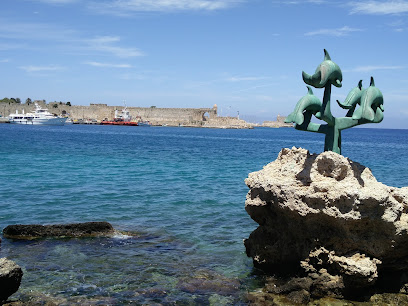
Al Raouche Rocks
Discover the breathtaking Al Raouche Rocks in Beirut, a stunning natural landmark offering scenic views, rich history, and vibrant local culture.
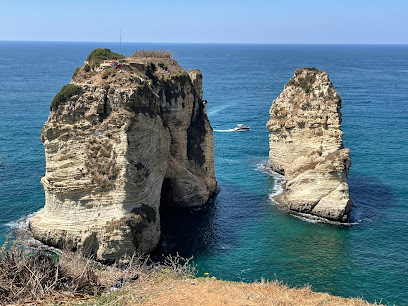
Jeita Grotto
Explore the captivating Jeita Grotto in Lebanon, a UNESCO World Heritage site featuring breathtaking limestone caves and serene underground rivers.
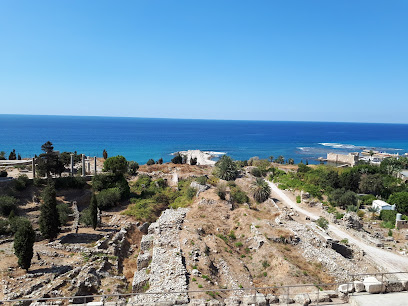
Our Lady of Lebanon بازيليك سيدة لبنان
Discover the serene beauty and spiritual significance of Our Lady of Lebanon, a stunning Catholic church offering breathtaking views and cultural insights.
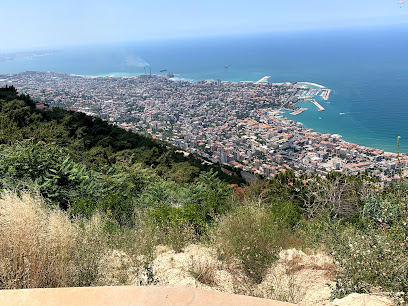
Teleferique du Liban
Soar high above Lebanon's breathtaking landscapes at the Teleferique du Liban, where stunning views and cultural experiences await.
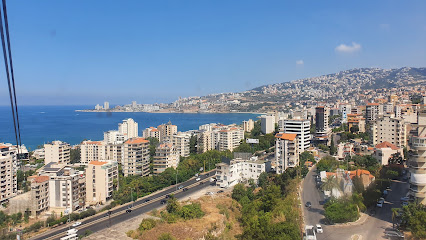
Cedars of God Bsharri
Explore the breathtaking beauty and rich history of the Cedars of God, a UNESCO World Heritage site in Lebanon's stunning mountains.
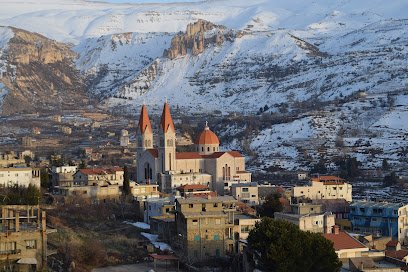
Byblos Citadel
Discover Byblos Citadel: A historical gem of Lebanon where ancient civilizations meet stunning coastal views.
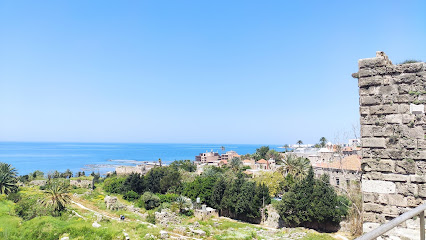
Batroun Old Souk
Discover the rich cultural heritage and vibrant life of Batroun Old Souk, a historical landmark in Lebanon, perfect for an immersive travel experience.
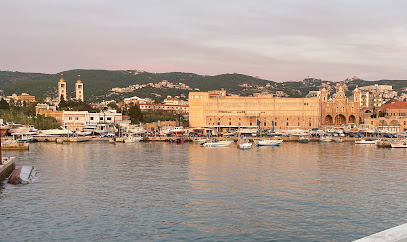
Saint Charbel Church
Discover the spiritual beauty of Saint Charbel Church in Byblos, a historic gem that embodies Lebanon's rich Christian heritage and architectural elegance.
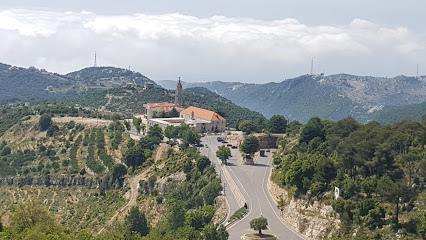
Corniche El Manara, Ain El Mraiseh, Beirut
Discover the charm of Corniche El Manara, Beirut's stunning seaside promenade with breathtaking views and vibrant local culture.
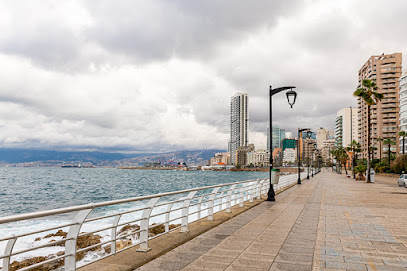
La Crêperie
Discover the taste of France in the heart of Lebanon at La Crêperie, a must-visit restaurant in Sarba, Jounieh.
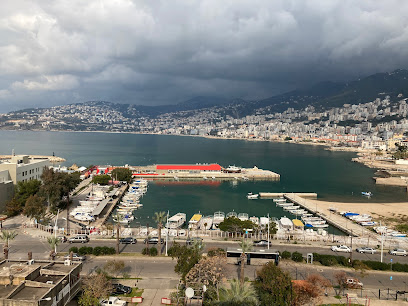
Téléferique Harissa
Discover breathtaking views and cultural landmarks on the unforgettable Téléferique Harissa, Lebanon's premier mountain cable car experience.
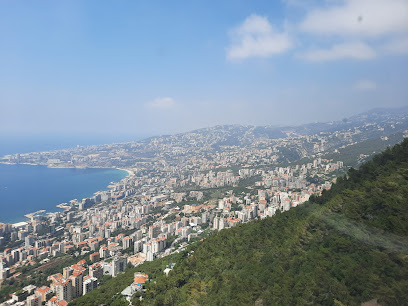
Al Sultan Brahim
Experience the best seafood in Lebanon at Al Sultan Brahim, Jounieh Bay, where fresh catches meet stunning Mediterranean views.
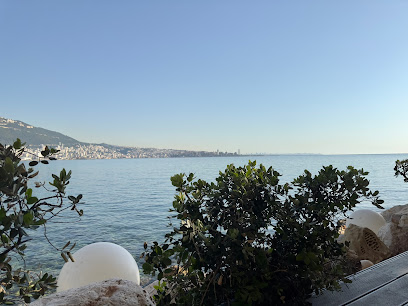
Animal City
Explore the wonders of wildlife at Animal City, Lebanon's premier animal park, where adventure and education come together in a stunning natural setting.
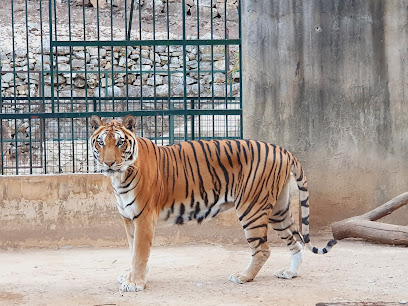
Fouad Chehab Stadium
Experience the thrill of live sports and cultural events at Fouad Chehab Stadium, a must-visit destination in Lebanon.
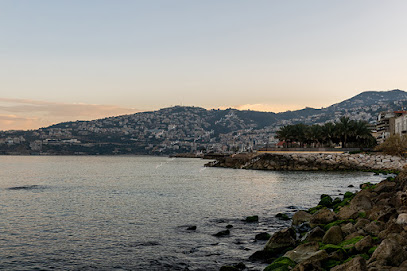
Unmissable attractions to see
Batroun Old Souk
Explore Batroun Old Souk: A vibrant marketplace where Lebanese culture comes to life through history, crafts, and culinary delights.
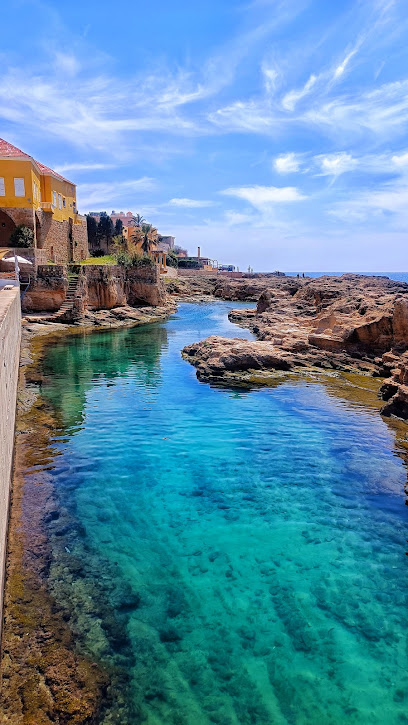
Balou3 Balaa Rest House
Discover the serene beauty of Balou3 Balaa Rest House in Lebanon, featuring the breathtaking Baatara Gorge Waterfall and tranquil nature trails.
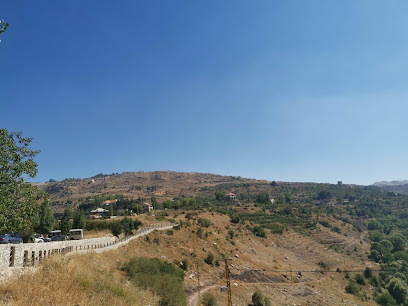
Animal City
Discover diverse wildlife and family fun at Animal City in Zekrit, Lebanon's premier animal park and tourist attraction.
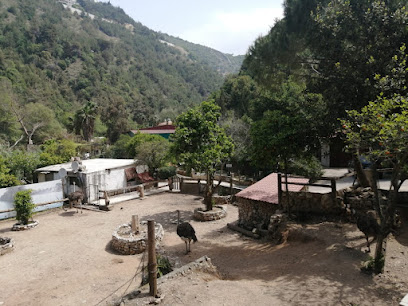
Fouad Chehab Stadium
Experience the heart of Lebanese sports and culture at Fouad Chehab Stadium in Jounieh, a historic venue hosting diverse events.
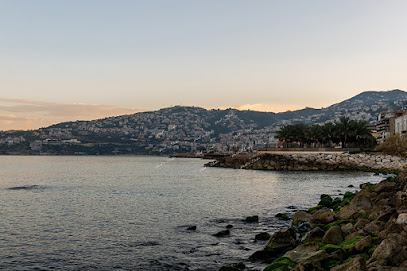
مدينة ملاهي بيروت
Experience nostalgic fun at Beirut's classic amusement park with seaside views, a testament to the city's enduring spirit.
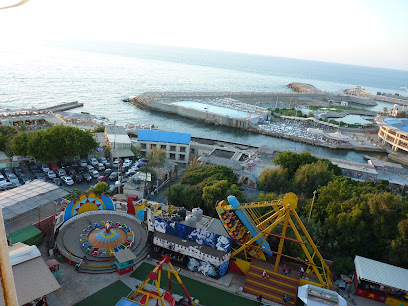
Palm Islands Nature Reserve
Discover Lebanon's only true islands: a Mediterranean sanctuary for wildlife, history, and serene escapes off the coast of Tripoli.
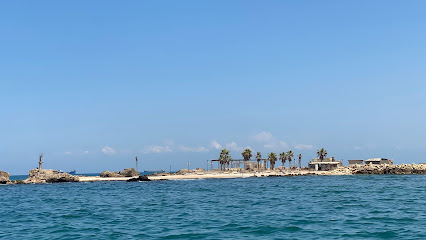
Paragliding Club Thermique Lebanon
Experience the ultimate thrill: Paraglide over Jounieh Bay with Lebanon's first and most experienced paragliding club since 1990. Certified pilots, unforgettable views.
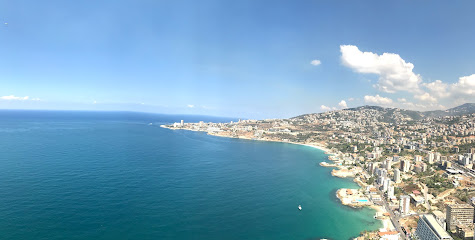
Paragliding jounieh
Experience the ultimate thrill: Paraglide over Jounieh, Lebanon, for breathtaking views and an unforgettable adventure!
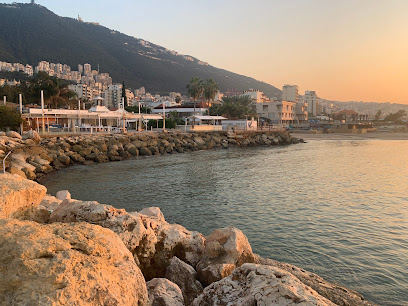
Faqra Roman Ruins (Kfardebian)
Explore ancient Roman history at the Faqra Ruins in Lebanon, featuring temples, towers, and stunning mountain views.
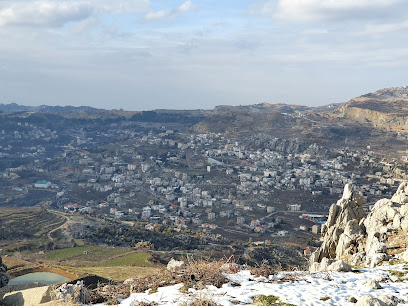
Paragliding.Lesa Lebanon
Soar above Jounieh and experience the thrill of paragliding with LESA Outdoors, offering tandem flights and paragliding courses for all skill levels.
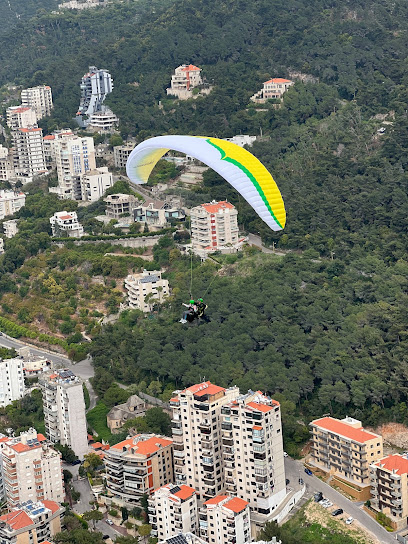
ProX Riding Club
Experience the thrill of ATV & snowmobile adventures in the Lebanese Mountains with guided tours and rentals for all skill levels!
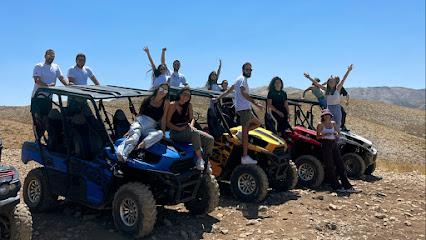
Amarilla Beach Experience
Experience the beauty of Lebanon at Amarilla Beach: sun, sea, vibrant beach life, and unforgettable memories on Jounieh's stunning coast.
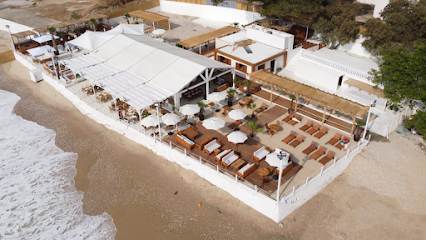
Paragliding Harissa Lebanon Official
Experience Lebanon from a breathtaking perspective: Paraglide over Harissa and Jounieh Bay for an unforgettable adventure.
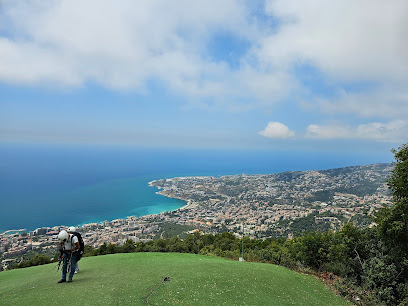
Jounieh Public Park
Escape to Jounieh's green heart: a botanical garden offering tranquility, scenic views, and a refreshing break from the city bustle.
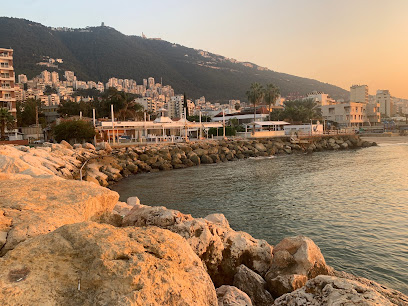
Old Souk
Explore the historic Old Souk in Ghazir, Lebanon: a vibrant marketplace filled with traditional crafts, local flavors, and cultural treasures.
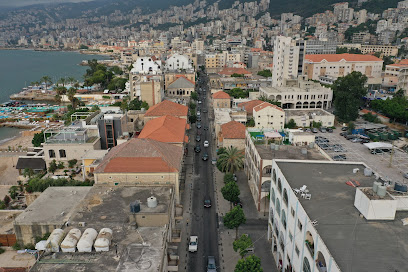
Essential places to dine
Manuella
Experience exquisite Lebanese cuisine and fresh seafood at Manuella along Jounieh's scenic coastline.
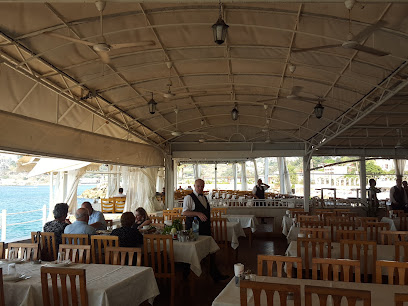
Amar Harissa - قمر
Experience authentic Lebanese cuisine at Amar Harissa - قمر along the breathtaking Harissa Highway.
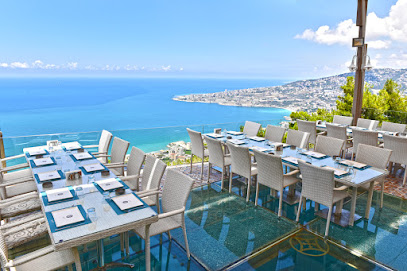
La Crêperie
Experience the essence of French cuisine at La Crêperie in Sarba—where every bite is a journey through delightful flavors.
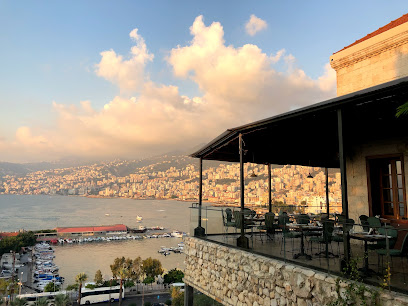
Al Sultan Brahim
Discover Al Sultan Brahim: A premier seafood destination in Jounieh Bay offering authentic Lebanese flavors and stunning Mediterranean views.
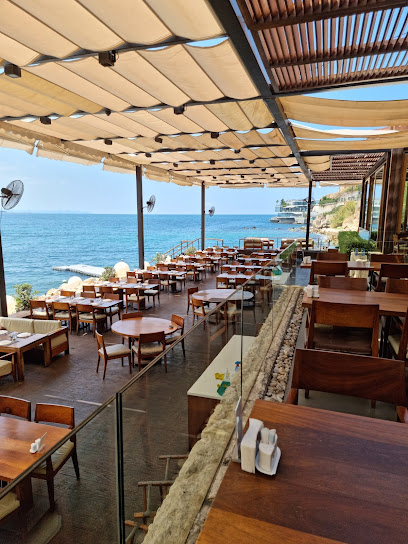
Bamboo Asian Cuisine
Discover authentic Asian cuisine at Bamboo Asian Cuisine in Jounieh – where vibrant flavors meet exceptional dining experiences.
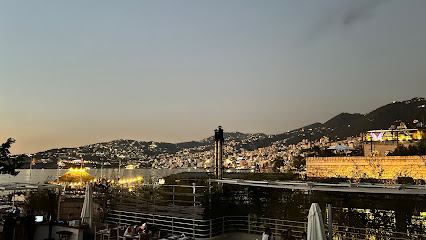
Chez Zakhia
Experience authentic Lebanese seafood dining at Chez Zakhia in Jounieh's historic Old Souk - where tradition meets taste.
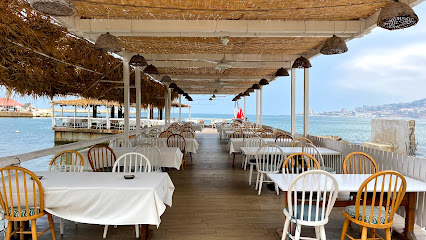
مناظر
Discover the taste of Lebanon at Manazir - a culinary haven offering authentic dishes and breathtaking views.
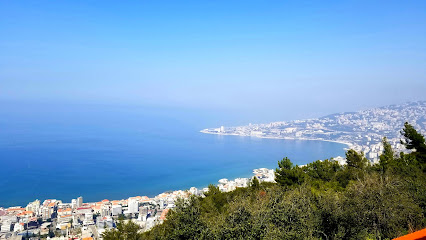
Makhlouf Sur Mer
Experience authentic Lebanese cuisine by the beach at Makhlouf Sur Mer in Juniyah – a culinary paradise with stunning sea views.
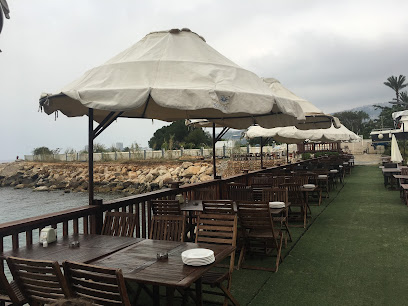
Juicy Grill
Experience the ultimate burger indulgence at Juicy Grill in Jounieh, Lebanon – where taste meets quality in every bite.
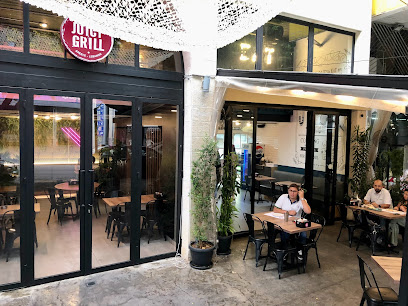
Al Phenic
Discover Al Phenic in Ghazir for an unforgettable Lebanese dining experience with stunning sea views and vibrant nightlife.
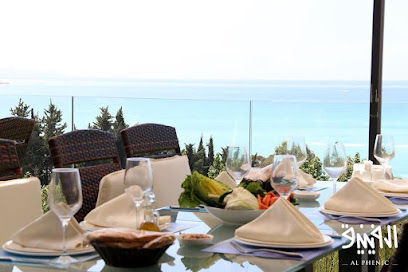
Les Tziganes Restaurant
Experience exquisite European cuisine with live music at Les Tziganes Restaurant in Jounieh - where every meal is a celebration.
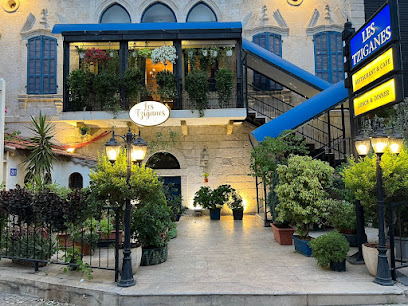
Zéralda
Experience exquisite French cuisine at Zéralda in Sarba - where every meal is a celebration of flavor and tradition.
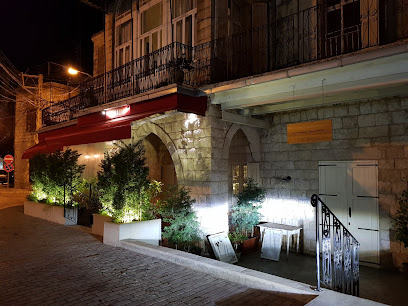
Hallab
Discover Hallab: A cherished Lebanese restaurant known for its delectable sweets and authentic dishes along the beautiful Jounieh coastline.
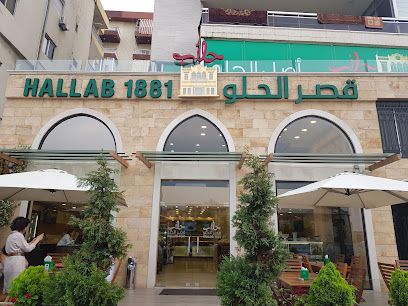
Restaurant Laura At Teleferique Foodcourt
Experience exquisite Lebanese cuisine at Restaurant Laura in Teleferique Foodcourt with breathtaking views and unforgettable ambiance.
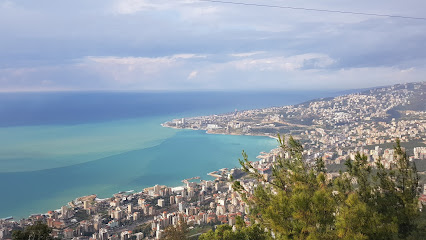
Rassifouna
Discover authentic Lebanese cuisine at Rassifouna in Sarba - where every dish tells a story.
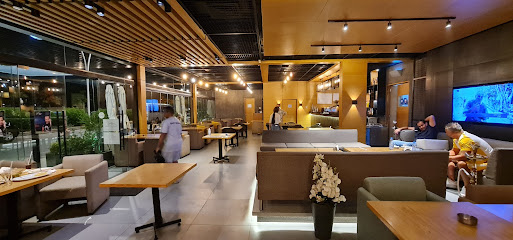
Markets, malls and hidden boutiques
LeMall
Discover the ultimate shopping experience at LeMall in Beirut, where fashion, dining, and entertainment come together in a vibrant atmosphere.
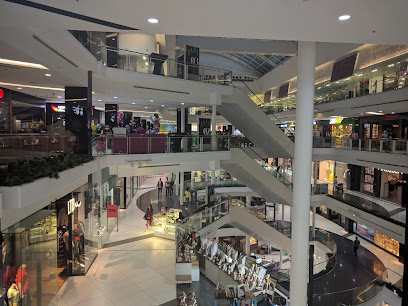
ABC
Explore ABC, Lebanon's leading shopping mall, where retail therapy meets culinary delights and family fun in a modern setting.
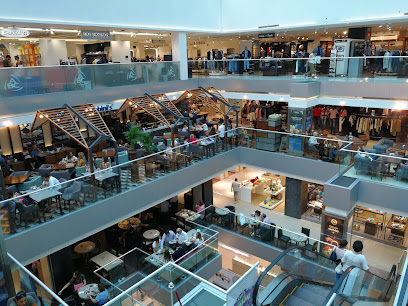
Nakhle.Ets Kaslik
Discover stylish women's fashion at Nakhle.Ets Kaslik, a must-visit boutique in Sarba for every fashion enthusiast.
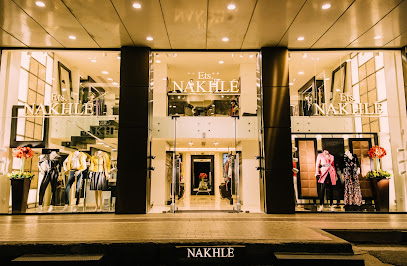
Vertico
Explore stylish women's clothing at Vertico in Jounieh, where fashion meets elegance in a vibrant shopping atmosphere.
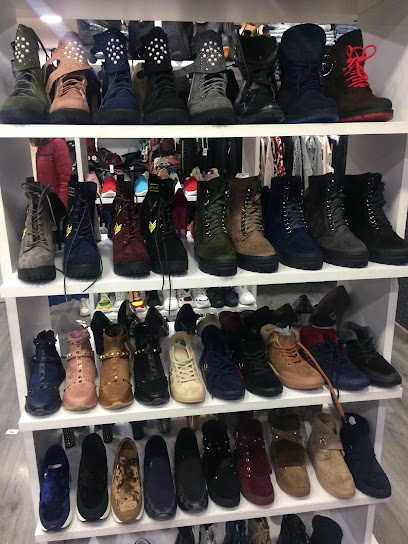
Gifts to Lebanon
Discover unique souvenirs and artisanal gifts at Gifts to Lebanon, where every item reflects the rich culture and artistry of the country.

Amwaj Center
Discover the stunning Amwaj Center, a public beach in Jounieh known for its golden sands, vibrant atmosphere, and breathtaking Mediterranean views.
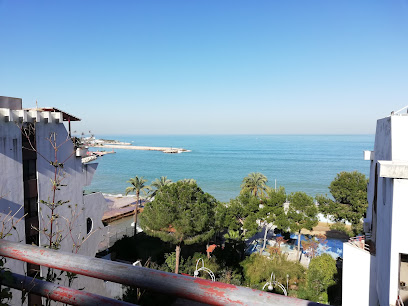
Crazy Nuts Jounieh
Discover the finest selection of nuts and dried fruits at Crazy Nuts Jounieh, a true gem for food lovers along Lebanon's Coastal Highway.
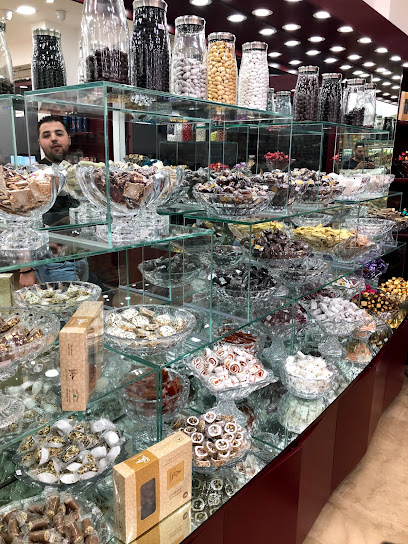
Brands & Beyond Jounieh
Experience incredible shopping at Brands & Beyond in Jounieh, where quality meets affordability in a vibrant, modern outlet mall.
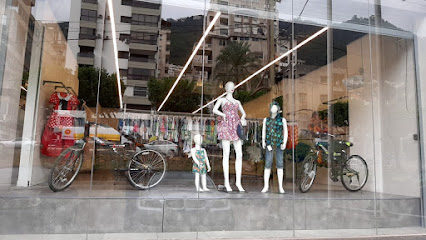
Femmes Sympas
Discover Femmes Sympas in Jounieh for quality clothing that blends style and affordability, perfect for the modern traveler.
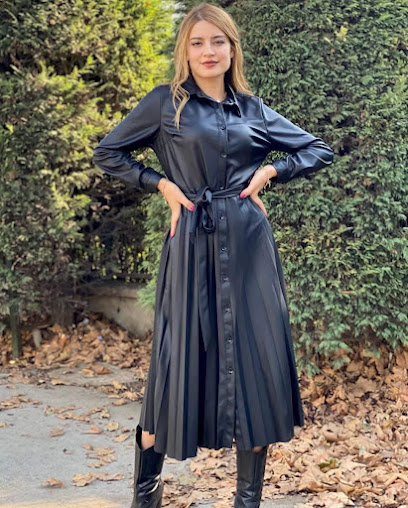
Bleu Marin Boutique
Explore Bleu Marin Boutique for unique clothing selections in Rabieh, Lebanon, where style meets affordability in a charming shopping experience.
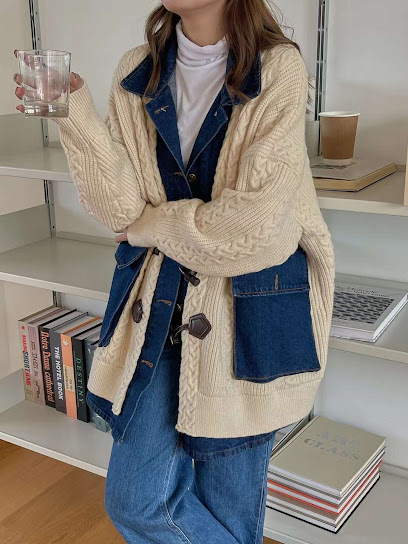
Guangzhou Stores
Explore Guangzhou Stores in Jounieh for quality home goods and unique finds, reflecting the charm of local craftsmanship.
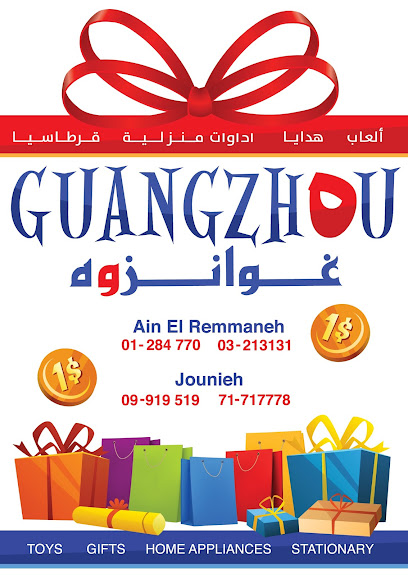
BARELEC - JOUNIEH
Explore BARELEC - JOUNIEH for the latest in mobile technology, accessories, and expert repair services along Lebanon's stunning coastline.
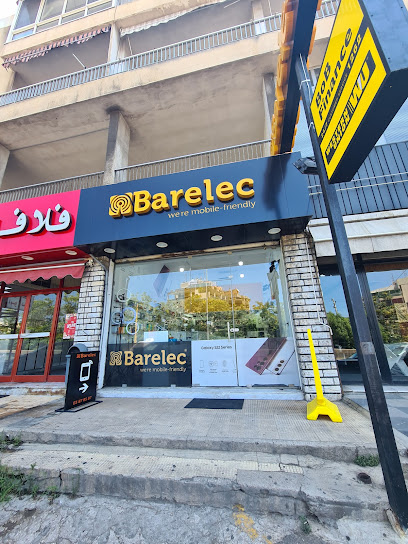
Artisans du Liban et d'Orient
Explore the rich cultural heritage of Lebanon at Artisans du Liban et d'Orient, a boutique offering handcrafted treasures and unique souvenirs.
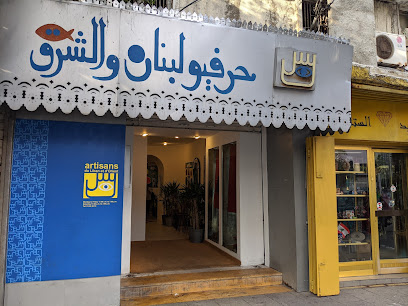
Gallery Matta - Antelias
Explore Gallery Matta in Antelias for stunning furniture that blends modern design with traditional craftsmanship, perfect for elevating your home decor.
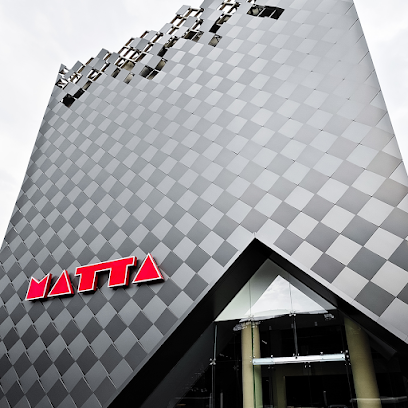
Caroll's Boutique Tableware
Discover exquisite tableware at Caroll's Boutique in Jounieh, where Lebanese artistry meets elegant home decor for every occasion.
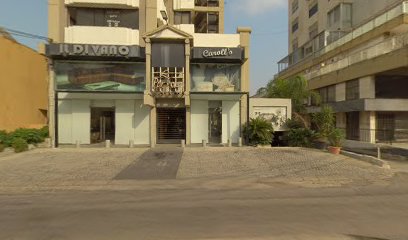
Essential bars & hidden hideouts
Hooligans Bar and Grill
Experience the vibrant nightlife of Jounieh at Hooligans Bar and Grill, where delicious food and refreshing drinks await you.
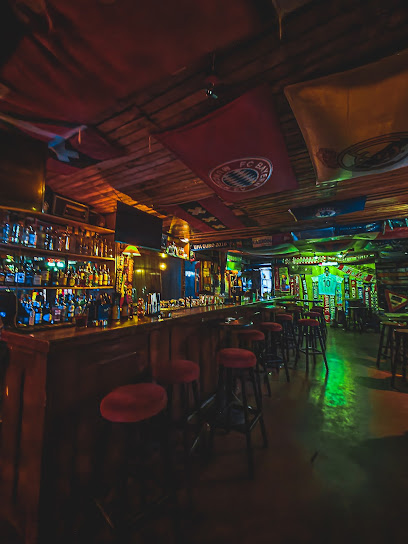
Olen bar
Experience the vibrant atmosphere and stunning sunset views at Olen Bar in Jounieh, a perfect lounge and pub for relaxation and socializing.
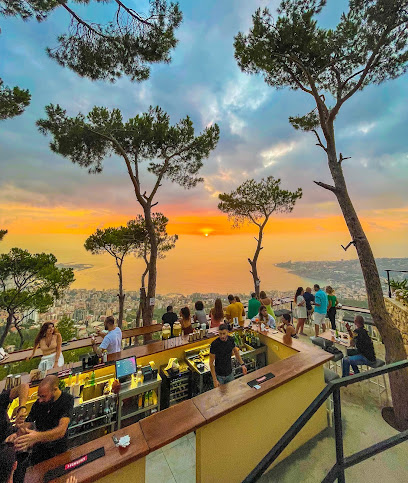
Bold Seafront
Experience the beauty of the Mediterranean at Bold Seafront, a serene lounge in Kaslik offering stunning views and delectable refreshments.
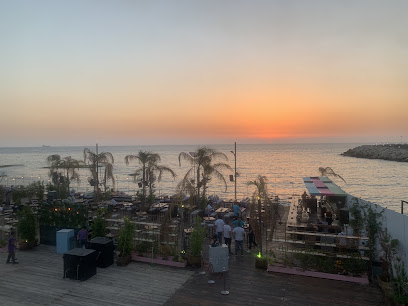
Tiki Bar - Lagon
Experience the vibrant nightlife at Tiki Bar - Lagon, where stunning views and tropical cocktails create the perfect escape in Jounieh.
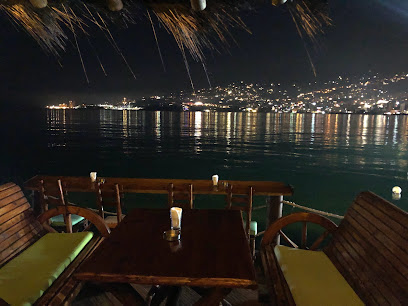
Junya Cafe Bar
Experience the vibrant flavors of Lebanon at Junya Cafe Bar, where delightful dishes and refreshing cocktails await in the heart of Jounieh.
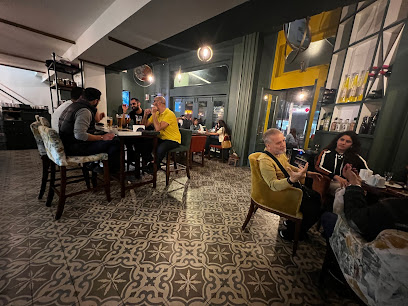
Boha
Experience vibrant nightlife at Boha, a bar in Zouq Mkayel offering stunning sea views and delightful drinks under the stars.
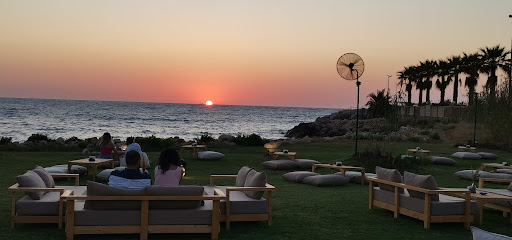
Maroji - Cocktail
Discover the ultimate cocktail experience at Maroji in Jounieh, where fresh flavors and a vibrant atmosphere await every visitor.
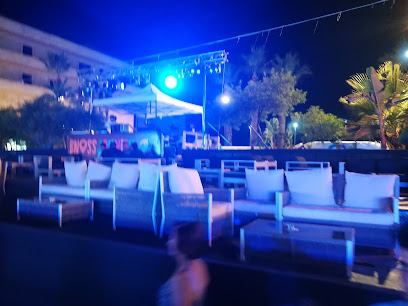
L'aprem
Discover the perfect blend of relaxation and coastal charm at L'aprem Lounge in Jounieh, where breathtaking views meet delightful flavors.
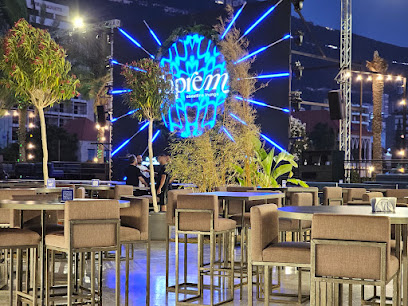
Bobby Blue Beach Bar
Discover the ultimate beach experience at Bobby Blue Beach Bar, where sun, sea, and savor unite for unforgettable moments.
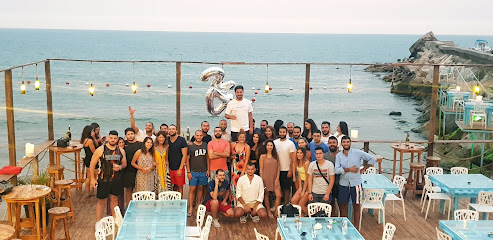
Fertil pub
Experience vibrant nightlife at Fertil Pub, where stunning coastal views meet delicious drinks and a lively atmosphere.
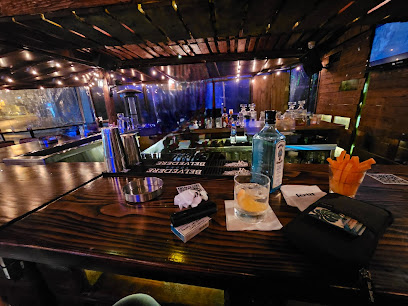
Voula Lounge
Experience the vibrant atmosphere of Voula Lounge in Kaslik, where stunning sea views meet delicious drinks and lively entertainment.
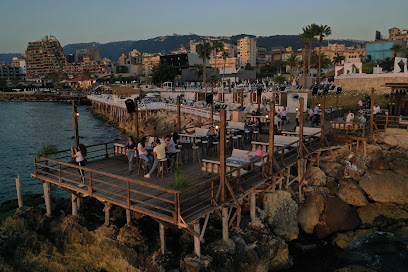
The Clam
Experience the vibrant nightlife at The Clam, a cocktail bar in Jounieh offering stunning sea views and expertly crafted drinks.
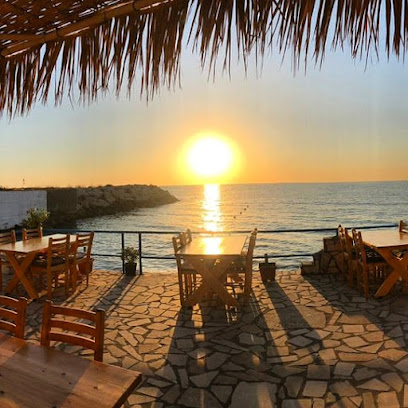
ESCO-BAR Jounieh Indoor
Experience vibrant nightlife at ESCO-BAR Jounieh Indoor, where authentic Tex-Mex cuisine meets a lively bar atmosphere in the heart of Jounieh.
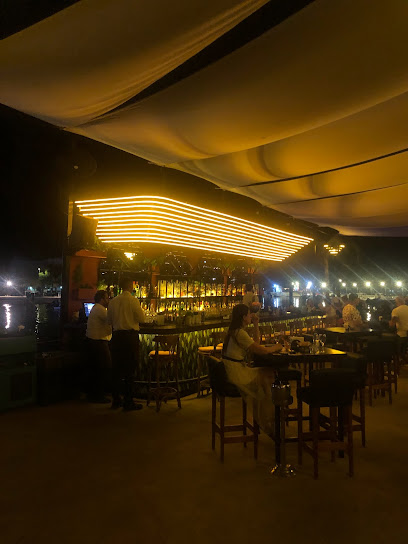
Don Jose Lounge Bar
Discover the sophistication of Don Jose Lounge Bar at Al Murjan Palace Hotel, where exquisite cocktails and stunning views await you in Jounieh.
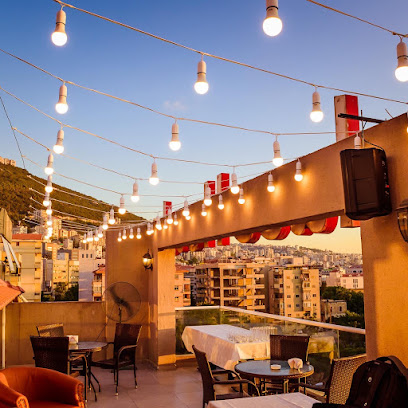
Local Phrases about Jounieh Coast
-
- Helloمرحبا
[marhaba] - Goodbyeوداعا
[wada'an] - Yesنعم
[naam] - Noلا
[la] - Please/You're welcomeمن فضلك
[min fadlak] - Thank youشكرا
[shukran] - Excuse me/Sorryعذرا
[udhran] - How are you?كيف حالك؟
[kayf halak?] - Fine. And you?بخير. وأنت؟
[bukhayr. wa ant?] - Do you speak English?هل تتحدث الإنجليزية؟
[hal tatahadath al-inglizia?] - I don't understandلا أفهم
[la afham]
- Helloمرحبا
-
- I'd like to see the menu, pleaseأريد أن أرى القائمة، من فضلك
[urid an ara alqaima, min fadlak] - I don't eat meatأنا لا آكل اللحم
[ana la akl allahm] - Cheers!صحتين!
[sahatin!] - I would like to pay, pleaseأريد أن أدفع، من فضلك
[urid an adfa, min fadlak]
- I'd like to see the menu, pleaseأريد أن أرى القائمة، من فضلك
-
- Help!النجدة!
[annajda!] - Go away!انصرف!
[ansarif!] - Call the Police!اتصل بالشرطة!
[itassil bialshurta!] - Call a doctor!اتصل بطبيب!
[itassil bitalib!] - I'm lostلقد ضللت الطريق
[laqad dalalt altariq] - I'm illأنا مريض
[ana mareed]
- Help!النجدة!
-
- I'd like to buy...أود أن أشتري...
[awad an ashtari...] - I'm just lookingأنا فقط أتفرج
[ana faqat atfarrag] - How much is it?كم هو ثمنه؟
[kam hu thamanuh?] - That's too expensiveهذا غالي جدا
[hatha ghali jiddan] - Can you lower the price?هل يمكنك خفض السعر؟
[hal yumkinuk khafd alsar?]
- I'd like to buy...أود أن أشتري...
-
- What time is it?كم الساعة؟
[kam alsaa'a?] - It's one o'clockالساعة الواحدة
[alsaa'a alwahida] - Half past (10)النصف (10)
[alnusf (10)] - Morningالصباح
[assabah] - Afternoonالعصر
[aleasr] - Eveningالمساء
[almasa] - Yesterdayأمس
[ams] - Todayاليوم
[alyawm] - Tomorrowغدا
[ghadan] - 1واحد
[wahid] - 2اثنان
[ithnan] - 3ثلاثة
[thalatha] - 4أربعة
[arba'a] - 5خمسة
[khamsa] - 6ستة
[sitta] - 7سبعة
[saba'a] - 8ثمانية
[thamaneya] - 9تسعة
[tis'a] - 10عشرة
[ashara]
- What time is it?كم الساعة؟
-
- Where's a/the...?أين ال...؟
[ayn al...?] - What's the address?ما هو العنوان؟
[ma hu al'unaan?] - Can you show me (on the map)?هل يمكنك أن تريني (على الخريطة)؟
[hal yumkinuk an tureeni (ala alkharita)?] - When's the next (bus)?متى يأتي الحافلة التالية؟
[mata yati alhafilat altaliat?] - A ticket (to ....)تذكرة (إلى ...)
[tadhkira (ila ...)]
- Where's a/the...?أين ال...؟
History of Jounieh Coast
-
Jounieh's history dates back to the ancient Phoenician civilization, which thrived around 1200 BCE. As a coastal city, Jounieh was a critical hub for maritime trade and navigation. The Phoenicians, renowned for their seafaring skills and the creation of the first alphabet, influenced the culture and development of Jounieh profoundly.
-
During the Roman period, from approximately 64 BCE to the 4th century CE, Jounieh was incorporated into the Roman Empire. This era brought about significant architectural and infrastructural developments, including roads, aqueducts, and temples. The influence of Roman culture, law, and architecture can still be observed in the region today.
-
Following the decline of the Roman Empire, Jounieh became part of the Byzantine Empire. The Byzantine period, from the 4th to the 7th century CE, saw the construction of early Christian churches and the spread of Christianity throughout the region. Byzantine mosaics and religious artifacts discovered in Jounieh bear testament to this era.
-
From the 16th century until the early 20th century, Jounieh was under Ottoman rule. This period was marked by administrative changes and the introduction of Ottoman architectural styles. The town's strategic location made it an essential part of the Ottoman Empire's coastal defense system.
-
After World War I and the fall of the Ottoman Empire, Jounieh came under the French Mandate from 1920 to 1943. This period saw modernization efforts, with the introduction of French cultural influences, educational institutions, and infrastructure development that transformed Jounieh into a more cosmopolitan town.
-
Lebanon gained its independence in 1943, ushering in a new era for Jounieh. The town grew rapidly, becoming a popular tourist destination known for its beautiful coastline, vibrant nightlife, and cultural heritage. The construction of casinos, luxury hotels, and marinas in the 20th century cemented Jounieh's reputation as a premier tourist hotspot in Lebanon.
Jounieh Coast Essentials
-
Jounieh Coast is located approximately 16 kilometers north of Beirut, Lebanon's capital. The nearest international airport is Beirut-Rafic Hariri International Airport (BEY). From the airport, you can take a taxi or arrange for a private transfer to Jounieh. The drive typically takes around 30 to 40 minutes, depending on traffic. Alternatively, you can use public transportation such as buses or shared taxis (service taxis) that operate between Beirut and Jounieh.
-
Jounieh is well-connected by various modes of transportation. Local taxis are plentiful and relatively inexpensive. For those who prefer public transportation, buses and shared taxis (service taxis) are widely available and connect Jounieh to nearby cities and towns. Renting a car is also an option for those who wish to explore the area at their own pace. However, be aware that traffic can be heavy, especially during peak hours.
-
The official currency in Lebanon is the Lebanese Pound (LBP), but US Dollars (USD) are also widely accepted. Credit cards are commonly used in hotels, restaurants, and shops in Jounieh. ATMs are available throughout the town for cash withdrawals. It is advisable to carry some cash for smaller establishments and street vendors that may not accept credit cards.
-
Jounieh is generally considered safe for tourists. However, as with any travel destination, it is important to remain vigilant. Avoid walking alone at night in unfamiliar areas and keep an eye on your belongings, especially in crowded places. While Jounieh does not have specific high-crime areas targeting tourists, it is always best to stay aware of your surroundings and follow standard safety precautions.
-
In case of emergency, dial 112 for police and 140 for medical emergencies. Jounieh has local police stations and medical facilities to address emergencies. It is recommended to have travel insurance that covers medical emergencies. Pharmacies are available for minor health issues, where you can purchase over-the-counter medications.
-
Fashion: Do dress modestly, especially when visiting religious sites. Avoid wearing overly revealing clothing. Religion: Do respect local customs and traditions. When visiting churches, dress conservatively and cover your head if required. Public Transport: Do be respectful and considerate of other passengers. Don't eat or drink on public transport. Greetings: Do greet people with a handshake or a friendly nod. Eating & Drinking: Do try local dishes and accept food offerings graciously. Don't refuse hospitality, as it is considered impolite.
-
To experience Jounieh like a local, visit the local markets and souks where you can buy fresh produce, spices, and traditional Lebanese goods. Take a stroll along the seaside promenade and enjoy the beautiful Mediterranean views. Engage with locals, as they are often friendly and willing to share stories about the town's history and culture. Don't miss visiting the Our Lady of Lebanon shrine in Harissa, which offers stunning views of the coast. For a unique experience, take a ride on the Téléférique (cable car) from Jounieh to Harissa.
Trending Landmarks in Jounieh Coast
-
Zaitunay Bay
-
Al Raouche Rocks
-
Jeita Grotto
-
Our Lady of Lebanon بازيليك سيدة لبنان
-
Teleferique du Liban
-
Cedars of God Bsharri
-
Byblos Citadel
-
Batroun Old Souk
-
Saint Charbel Church
-
Corniche El Manara, Ain El Mraiseh, Beirut
-
La Crêperie
-
Téléferique Harissa
-
Al Sultan Brahim
-
Animal City
-
Fouad Chehab Stadium
Nearby Cities to Jounieh Coast
-
Things To Do in Broummana
-
Things To Do in Byblos
-
Things To Do in Beirut
-
Things To Do in Aley
-
Things To Do in Zahle
-
Things To Do in Batroun
-
Things To Do in Deir el Qamar
-
Things To Do in Anjar
-
Things To Do in Bcharre
-
Things To Do in Baalbek
-
Things To Do in Sidon
-
Things To Do in Rashaya
-
Things To Do in Marjayoun
-
Things To Do in Tyre
-
Things To Do in Rosh HaNikra










